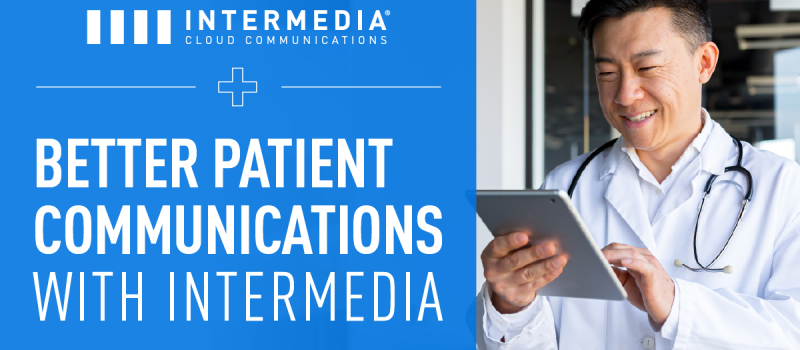Effective communication is the backbone of quality healthcare. In hospitals, where patient care and information accuracy are paramount, hospital contact centers play a vital role in shaping the patient experience. These centers serve as the first point of contact for inquiries, appointment scheduling, and emergency responses, making them integral to patient satisfaction.
This article will explore how hospital contact centers can enhance patient interactions, streamline communication, and support better outcomes. From understanding their essential role to adopting the best practices and technologies, we’ll uncover what it takes to build a contact center that truly elevates patient care.
Quick Takeaways
- Hospital contact centers are crucial for seamless communication and significantly impact patient satisfaction and trust.
- Effective contact centers should offer multi-channel communication, EHR integration, and 24/7 availability to optimize patient support.
- Utilizing AI, IVR systems, secure platforms, and call analytics enhances the efficiency and quality of patient interactions.
- Comprehensive training, patient feedback loops, and scalable solutions ensure contact centers maintain high service standards and adaptability.
The Role of Hospital Contact Centers in Patient Experience
Hospital contact centers are central to the patient journey, acting as the main interface between patients and healthcare providers.
These centers handle a variety of tasks, from scheduling appointments and providing test results to answering questions about treatment plans. By efficiently managing these interactions, hospital contact centers ensure that patients receive timely and accurate information, fostering trust and confidence.
Given that 90% of hospitals and providers believe that patient experience is the single most effective means of differentiating themselves from their competition, contact centers play a pivotal role in achieving this competitive edge.

Challenges such as high call volumes and the need for rapid emergency responses can impact service quality. However, when contact centers function effectively, they reduce patient frustration, streamline care coordination, and support the overall quality of service. This is why a well-managed hospital contact center is a key component of a patient-centric healthcare system.
Key Features of an Effective Hospital Contact Center
To provide optimal patient support, a hospital contact center must have certain essential features that enhance efficiency and communication. Here are the key components:
- Multi-Channel Communication: Patients today expect the ability to communicate via phone, email, chat, and SMS. Offering multiple channels ensures that patients can reach out using their preferred method, reducing wait times and improving satisfaction.
- Integration with Patient Management Systems: Seamlessly connecting the contact center with electronic health records (EHRs) is crucial. This integration allows contact center agents to access patient data quickly, enabling them to provide accurate, informed responses and ensure continuity of care.
- 24/7 Availability and Support: Healthcare needs don’t pause after business hours. Providing round-the-clock availability allows hospitals to respond to patient inquiries at any time, improving patient experience and ensuring vital support during emergencies.
By incorporating these features, hospital contact centers can enhance their ability to serve patients effectively, paving the way for a more responsive and supportive healthcare system.
Technologies That Elevate Hospital Contact Centers
Leveraging modern technology is essential for hospital contact centers to operate efficiently and deliver high-quality patient care. Here are some transformative technologies that can elevate the performance of these centers:
AI and Automation
Implementing AI-driven tools helps streamline repetitive tasks such as appointment scheduling and answering frequently asked questions.
Automation reduces the workload on agents, allowing them to focus on more complex, personalized patient interactions, thus improving overall service quality.
Interactive Voice Response (IVR)
Advanced IVR systems enable patients to navigate options and connect with the appropriate department or specialist more efficiently. This technology helps reduce wait times, which is essential for addressing common issues such as call abandonment.
With average call abandonment rates in healthcare contact centers close to 7%, effective call routing through IVR systems can significantly improve call completion and patient satisfaction.

Secure Communication Platforms
Ensuring that all patient interactions are conducted over secure, HIPAA-compliant platforms is vital. These platforms protect patient privacy and data, fostering trust between patients and healthcare providers while meeting regulatory standards.
Call Analytics and Reporting
Utilizing call analytics provides valuable insights into call volumes, response times, and patient concerns. Reporting tools allow hospital administrators to identify patterns, optimize staffing, and implement targeted improvements for better service delivery.
Implementing Best Practices in Hospital Contact Centers
To maximize the benefits of a hospital contact center, it is important to implement best practices that focus on both technology and human expertise. Here are some key strategies:
- Training for Contact Center Agents: Comprehensive training ensures that agents have the necessary skills to communicate with empathy and provide patient-centric service. Agents should be equipped with knowledge of medical terminology and patient management systems to answer inquiries confidently and accurately.
- Feedback Loops: Establishing a process for collecting and acting on patient feedback helps contact centers identify areas for improvement. Regularly reviewing feedback allows hospitals to make necessary adjustments and maintain a high standard of service.
- Scalability and Flexibility: Contact centers must be able to scale to handle fluctuating patient needs, especially during peak times or emergencies. Choosing technology and processes that offer flexibility ensures that the center remains effective regardless of patient volume.
By focusing on these best practices, hospital contact centers can build a foundation for consistent and empathetic patient interactions, fostering trust and satisfaction while improving overall efficiency.
Strengthen Patient Care Today with Intermedia
An effective hospital contact center is essential for improving patient experience and ensuring seamless communication in healthcare. By incorporating key features, leveraging modern technologies, and following best practices, hospitals can create a patient-centric support system that fosters trust and satisfaction.
Ready to enhance your hospital’s contact center capabilities? Discover how Intermedia’s reliable cloud communication solutions can support seamless, patient-centric interactions with security and efficiency. Learn more or schedule a demo today!
December 27, 2024
Explore other posts on these topics: Contact Center




